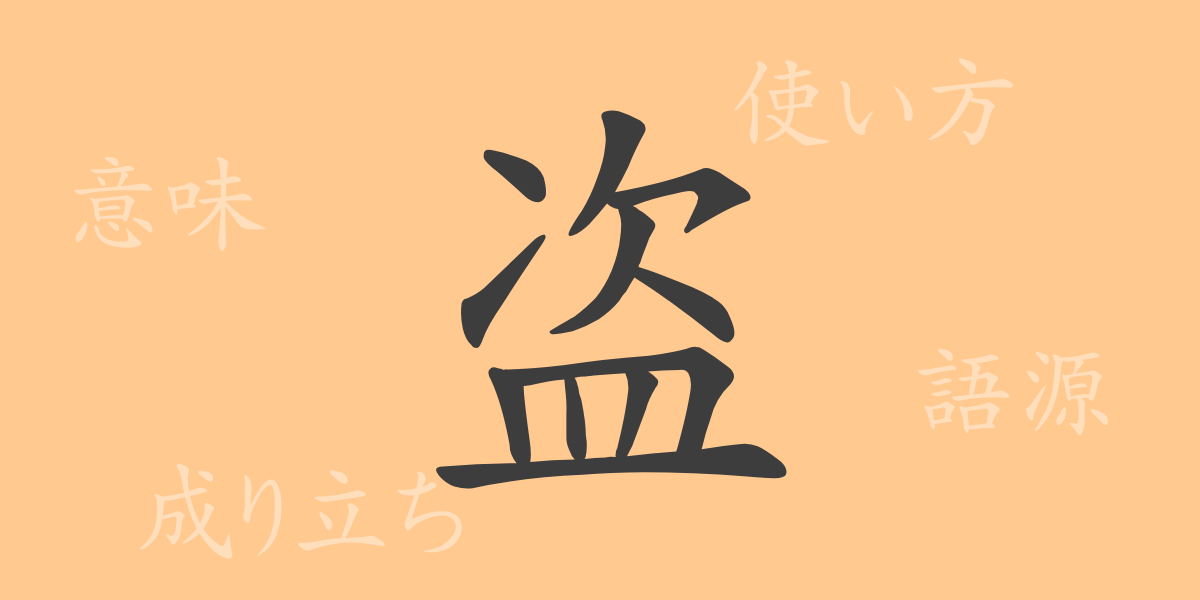Language evolves over time, reflecting the history and culture behind it. The Japanese Kanji ‘盗 (とう)’ also carries a profound narrative in its form and meaning. This article delves into how the character ‘盗’ was formed, its meanings, how it is used in daily life, and explores its rich expressive power through idioms and proverbs featuring ‘盗’.
Origins of ‘盗 (とう)’
The Kanji ‘盗’ originated in ancient China. Evolving from oracle bone script, its form represents a hand secretly reaching into a jar, symbolizing the act of ‘stealing’. Over time, ‘盗’ has evolved to a more abstract form but retains its fundamental meaning, signifying the act of covertly taking someone else’s belongings.
Meaning and Usage of ‘盗 (とう)’
‘盗’ primarily refers to acts such as ‘to steal’ or ‘theft’, and is used to describe someone who performs such acts. It is also used in legal terms like ‘窃盗 (せっとう)’ for ‘theft’ or ‘強盗 (ごうとう)’ for ‘robbery’, indicating types of crimes. Metaphorically, it can express actions like ‘stealing time’, used in various contexts.
Reading, Stroke Count, and Radical of ‘盗 (とう)’
The Kanji ‘盗’ has various readings and fundamental attributes.
- Readings: On’yomi ‘トウ’, Kun’yomi ‘ぬす.む’, ‘ぬす.み’
- Stroke Count: ‘盗’ is composed of 11 strokes.
- Radical: The radical for ‘盗’ is ‘皿’, but it includes ‘次’ as a component.
Idioms, Phrases, and Proverbs Using ‘盗 (とう)’
‘盗’ appears in many idioms and proverbs, reflecting aspects of Japanese culture and language.
- 窃盗 (せっとう) – Secretly stealing someone’s property.
- 強盗 (ごうとう) – Robbery involving threats or violence.
- 盗人猛々しい (ぬすっとたけだけしい) – Describes a thief acting boldly or shamelessly.
- 盗み聞き (ぬすみぎき) – Eavesdropping or secretly listening to others’ conversations.
- 盗人にも三分の理 (ぬすっとにもさんぶんのり) – Even a wrongful act may have its reasons, a proverb highlighting that even those who commit crimes might have their justifications.
Conclusion on ‘盗 (とう)’
The Kanji ‘盗’ has evolved from ancient to modern times, symbolizing the act of stealing while being extensively used in legal terms, idioms, and proverbs. It reflects societal aspects through language, illustrating how culture and values are embedded in words. Understanding ‘盗’ enriches comprehension of Japanese, illuminating its significance in the language and society.

























